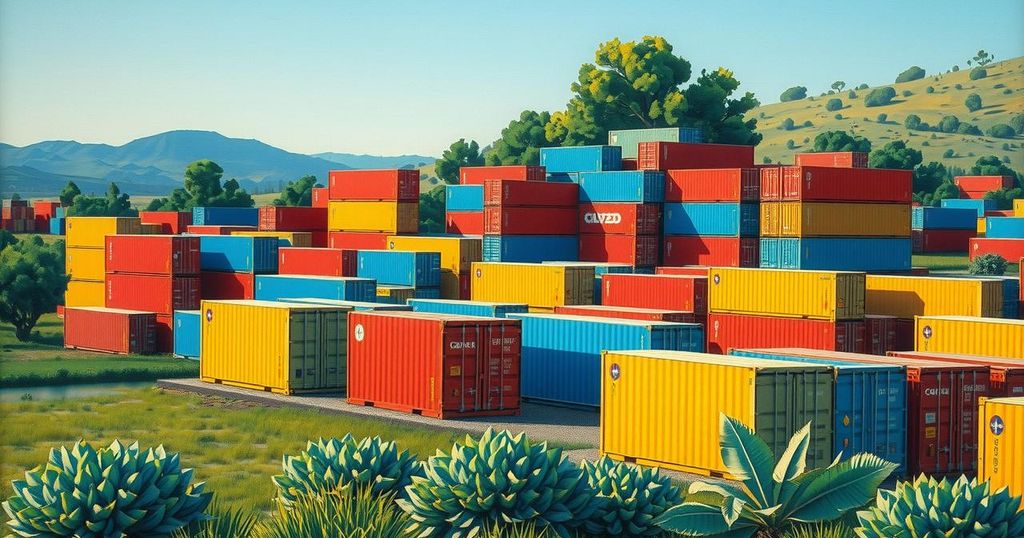Adapting to Shifting Expectations in South Africa’s Logistics Sector

The logistics and transport sector in South Africa is pressured by evolving consumer expectations, emphasizing real-time communication and speed. Companies must enhance customer engagement through automation and omnichannel strategies to remain competitive. The increasing importance of AI and chatbots can streamline operations and improve service, presenting opportunities for growth in this dynamic market.
The logistics and transport sector in South Africa is increasingly challenged by rapidly changing customer expectations, notably for enhanced engagement through real-time updates and prompt responses. Consumers now have a wider selection of providers, highlighting a strong demand for simplicity in communication and speed in delivery processes. This trend has become essential for companies aiming to maintain competitiveness and a significant market share.
The demand for effective feedback mechanisms and two-way communication has intensified as customers wish to express their needs, especially during urgent logistics situations. The logistics industry must adapt to these shifting consumer expectations by prioritizing choice, simplicity, speed, and effective communication strategies.
Automation and omnichannel communication are critical for logistics firms to tackle these challenges and respond to the increasing demand for swift deliveries. Investing in advanced technology not only boosts efficiency but also reduces operational costs while enhancing customer satisfaction.
For parcel pickup and delivery services, automatic communication regarding delivery schedules should utilize preferred channels to prevent complications arising from undelivered packages. Proactive strategies, like failover communications, can significantly mitigate the strain on customer service operations during problematic situations.
The transportation and logistics industry can glean valuable insights by adopting best practices from successful ridesharing and food delivery services. Real-time updates about shipments, facilitated through chat applications, enable businesses to enhance customer engagement and satisfaction. Additionally, chatbots can provide instant support for various logistical issues, thus creating more responsive operations.
Implementing messaging solutions like WhatsApp and Facebook Messenger allows logistics companies to reach customers through their preferred platforms, accommodating the demand for flexibility in communication. Chatbots and virtual assistants support streamlined processes by offering 24/7 availability and managing common inquiries, which in turn strengthens customer relations and promotes loyalty.
The future of the logistics sector will increasingly revolve around technology, with AI and autonomous systems transforming operations and aligning with evolving customer expectations. Innovations aimed at enhancing efficiency and facilitating seamless customer experiences will become crucial for success. Notably, by 2028, Gartner predicts that 15% of daily work decisions will be autonomously made by AI systems, marking a significant shift from current practices.
The “Messaging Trends 2024” report from Infobip highlights an upward trend in conversational-style business messaging, with the transportation and logistics sector in Africa experiencing notably higher growth in messaging usage. This development presents an opportunity for companies to leverage technology to improve customer experiences and remain competitive in their respective markets.
In conclusion, as customer expectations evolve, the success of logistics companies will depend on their ability to adapt by integrating advanced technology, enhancing communication channels, and fostering strong customer relationships. Embracing these innovations will enable firms to thrive in an increasingly competitive landscape.
In conclusion, the logistics and transport sector in South Africa faces pressing challenges due to changing consumer expectations, underscoring the importance of enhanced communication and responsiveness. Companies must prioritize automation and omnichannel solutions to remain competitive. By leveraging technologies such as AI and chatbots, logistics providers can streamline operations and improve customer engagement, ultimately fostering loyalty and satisfaction. As the landscape rapidly evolves, embracing these innovations will be essential for success in the industry.
Original Source: www.zawya.com




